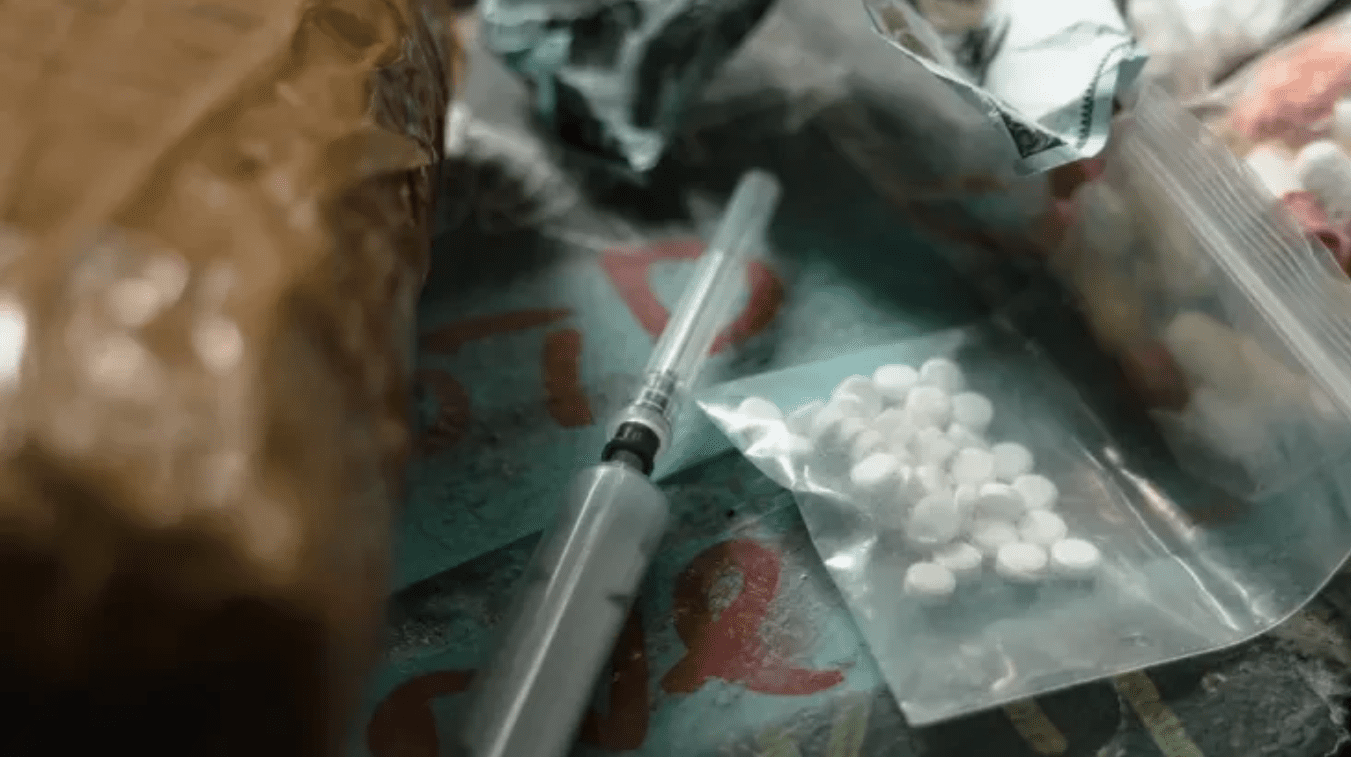Xylazine is called a “zombie drug” because the users have this particular, confused, hunched and slowed move which gives them the appearance of the living dead.
In the whole world, environmental disasters, poverty, inequalities and social injustice are increasing, health care is degrading, same for education and moral values; it is also noted the instrumentalisation of religions and human rights; the metropoles are subject to pollution, crimes, human trafficking and flourishing illicit drug markets. And among the long, impressive and life-threatening list of illicit drugs and New Psychoactive Substances (NPS) -most often produced to circumvent the drug laws- the emergence of a new one, Xylazine, is gaining the attention of the concerned authorities (Rodriguez N. et al., 2008).“Xylazine is making the deadliest drug threat our country has ever faced, fentanyl, even deadlier,” said Administrator Milgram-U.S.A. Drug Enforcement Administration (2023).
The xylazine (C12H16N2S) is not an opioid like fentanyl but a methyl benzene from the class of phenothiazines. It had been produced by various alternate syntheses, starting in Germany (Bayer Pharmaceutics, 1962). This is a highly lipophilic substance, so easily crosses the membranes and reaches the brain receptors as well as the ones in the body.
This is a drug initially considered for use in humans as an antihypertensive agent, but due to the adverse effects in humans (severe hypotension and Central Nervous System depressant effects), its medical use was discontinued.
In 1972 its use was approved by the U.S. Food and Drug Administration only in veterinary medicine for sedation (for 1-4 hours), analgesia (15-30 min), anaesthesia for surgical procedures, and as a muscle relaxant, in animals such as horses, cattle, sheep, dogs, and others.
Xylazine in human misuse is known under the names of flesh-eating drug, tranq, tranq-dope, zombie drug, sleep-cut, and Philly dope. It is called a “zombie drug” because the users have this particular, confused, hunched and slowed move or in some cases are in a trance-like state, which gives them the appearance of the living dead that people describe as being zombie-like.
In 2022, the Estonian police reported seizing mixtures containing new opioids and the animal sedative and analgesic xylazine. Most often, xylazine is used as a cheap drug adjuvant (online, for 6-20 dollars per kilogram) to inflate doses of hard drugs, including the opioid fentanyl whose mixture is health devastating. The first death in Europe associated with xylazine use was reported in England (UK) in 2022 with a postmortem detection of heroin, cocaine, fentanyl, and xylazine (Rock K. L. et al., 2023).
As an illicit drug, xylazine can be consumed orally, by smoking, snorting, by intramuscular, subcutaneous, or intravenous injection. The drug’s reported duration of effect is longer than that of fentanyl. The adulteration of fentanyl with xylazine allows to extend the feeling of euphoria and analgesia induced by fentanyl and to reduce the frequency of injections (Gupta R. et al. 2023).
Xylazine would be 50 times more powerful than heroin, and 100 times more powerful than morphine. Xylazine is currently responsible for a third of overdose deaths in the United States. Indeed, the Centers for Disease Control and Prevention, Report 30 (June 2023), mentions that the number of drug overdose deaths involving xylazine was 102 in 2018, 627 in 2019, 1 499 in 2020, and 3 468 in 2021.
In users, xylazine causes loss of consciousness, and states of stupor and in injecting users can lead to skin lesions, and ulcers that, easily infected, can cause gangrene and necrosis often requiring amputation to remove the limb with the rotting tissue. The Professor of Neurobiology S. Kourrich (2023) speaks of the devastating effects, beyond addiction, of xylazine on health, including skin lesions worthy of horror movies.
The signs and symptoms of xylazine overdose are similar to those of heroin, fentanyl, and other opioids. When xylazine is added to opioids, severe toxicity and death can occur due to the combined effects of the drugs. But, because xylazine is not an opioid, Naloxone (best antidote for opioid overdose – Jordan M.R. and Morrissonponce D., 2023) is unlikely to be effective in treating people. There is no safe xylazine drug dose to use!
Xylazine acts within the brain to cause sedation and abnormally slow breathing, a life-threatening respiratory depression (that can request tracheostomy) leading to cardiac arrest and death. The effects of severe xylazine intoxication can last for several days.
Xylazine is an adrenergic agonist, having the same action as adrenaline, a hormone and neurotransmitter (Chavez-Arias et al., 2014). Due to its highly lipophilic nature, xylazine directly stimulates the Central Nervous System alpha(α)2-adrenergic receptors as well as other peripheral α-adreno receptors in a great variety of tissues. It has been shown that the human placenta expresses α2-adrenergic receptors that may be implicated in pathogenesis and fetal growth restriction (Motawea H.K.B. et al., 2018).
Note: The 5 main different types of adreno-receptors are:
(Alpha) α-1: present on the smooth muscle fibres of the vessels; α-2: pre-synaptic localization (inhibitory effect on the synapse) located in the central nervous system and heart. α-2 is composed of 3 subtypes A, B, C.
(Beta) β-1: present in the heart where it strengthens the activity (faster and stronger beats); β-2: present locally on certain tissues and allows vasodilation of the arteries or dilation of the bronchi; β-3: present on adipocytes, stimulates thermogenesis.
These receptors are a class of G protein-coupled receptors, a family of transmembrane receptors in mammals, target of many catecholamines as the natural ligands of the α2-receptors which are: the noradrenaline (norepinephrine) which has a greater affinity, the adrenaline (epinephrine), and the dopamine (the molecule of pleasure, part of the reward system in the brain).
Xylazine inhibits the release of both neurotransmitters dopamine and norepinephrine at the neuronal synapse, resulting in depression of the Central Nervous System interfering with behavioural flexibility, working memory, and nociceptive control and it causes the inhibition of the Sympathetic Nervous System (automatic activities of the body) as on smooth muscle contraction and at heart level a bradyarrhythmia, thus responsible for the decrease of alertness, nociception, muscle tone and of the fight-or-flight response.
Xylazine is metabolized in the liver by the cytochrome P450 enzymes, and then 70% is excreted as urine (Barroso M. et al., 2007). So, urine can be used in detecting xylazine through its metabolites but within a few hours, they decrease to undetectable levels.
How come people are voluntarily reaching such a point of self-destruction, debilitating and painful physical deterioration and dependence?
Substance abuse (greed and dependence) has been associated with early emotional deficiencies resulting in an inability to tolerate emotions and regulate self-esteem and relationships with others (Krystal H., 1982).
Before reaching this addiction point there is a long way to go, starting often with alcohol and cannabis (and some medicines). It is not with legalization, decriminalisation, or shooting rooms that the drug problem will be solved, these ways appear to escape the responsibilities in terms of prevention.
Even if there is no ideal age to talk about the harmful effects of drug use, young people must be informed of these risks as early as possible. The role of the parents -when it is not itself a risk factor- by listening, conversing and providing correct information remains the best prevention. This should be reinforced by trained teachers and educators with continuous yearly teaching adapted to the age and with prevention actions carried out by governments, communities, organizations and associations, among youth and parents.
This is what the Say No To Drugs volunteers across Europe with the Foundation for a Drug-Free Europe strive to achieve through the educational materials The Truth About Drugs*.
The Greek philosopher Epictetus (50-135 A.D.) said: Only the educated are free. Indeed, education provides awareness and knowledge of basic elements of life and gives the ability to differentiate the right from the wrong and to take the right decision. Because as said by the humanist L. Ron Hubbard in 1956: It’s a problem in unawareness. The ethics, the morality, the capability of good, sound judgment alike depend upon the ability to be aware.
Instead of living the drug hell torments of a drug addict who can no longer stand life enslaved to the increasing spiral of harmful drug doses, isn’t it better to be able to face life responsibly, and freely, and act with passion and perseverance to make dreams come true?
REFERENCES
www.emcdda.europa.eu/publications/european-drug-report/2023/
www.desdiversion.usdoj.gov/drug_chem_info/Xylazine.pdf
www.poison.org/articles/what-is-xylazine
https://www.cdc.gov/nchs/data/vsrr/vsrr030.pdf
https://www.dea.gov/alert/dea-reports-widespread-threat-fentanyl-mixed-xylazine
(*)Visit:
- wwwdrugfreeworld.org (free materials in 20 languages)
- Foundation for a Drug-Free Europe: https://fdfe.eu













